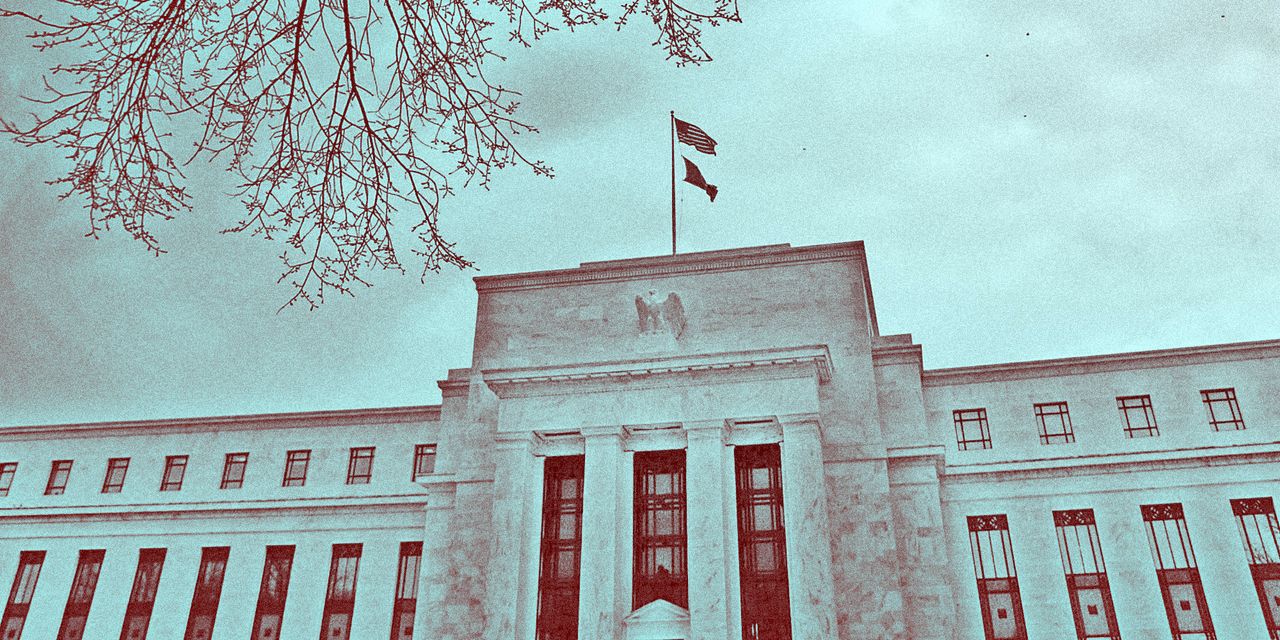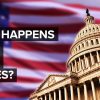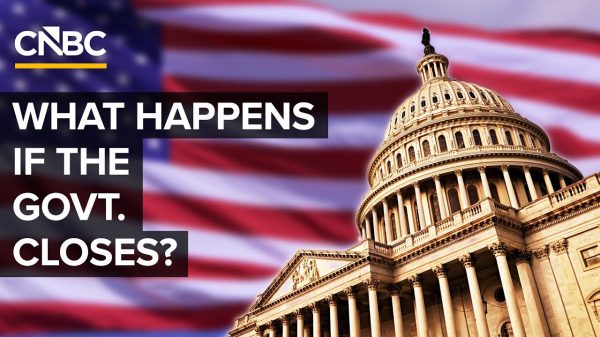The market has made up its mind on the Federal Reserve’s view that two more rate hikes are needed. It just doesn’t believe it.
There was a time, earlier in the cycle, when a hawkish surprise would have sent stocks sharply lower. The opposite has happened.
The S&P 500 closed higher for a sixth consecutive day Thursday, its longest winning streak since November 2021. Microsoft and Apple both finished at record highs as the Nasdaq Composite notched its highest close since April. The prospect of higher interest rates typically hurts high-growth tech stocks, given their valuations are driven by future earnings estimates.
But the market is actually celebrating what it sees as the imminent end of the Fed’s aggressive rate-hiking campaign.
Not trusting the central bank, investors have taken their own look at the data. They see an economy that is cooling. U.S. jobless claims stayed at 262,000 last week, a near-two year high. The inflation rate has fallen to 4% from a peak of 9.1% last June.
Markets may well think only one more rate hike is needed, but it’s still the Fed that will ultimately make that decision. Chairman Jerome Powell has a different interpretation of the data, as he says the central bank’s inflation fight “has a long way to go.”
Investors’ current jubilation will be all for nothing unless the Fed starts seeing things their way.
—Callum Keown
*** Join Investor’s Business Daily’s multimedia content editor Alissa Coram and deputy markets editor David Saito-Chung today at noon when they discuss five of IBD founder Bill O’Neil’s most notable stock pick winners—eBay, Pic ‘N’ Save, Chrysler, Syntex and Amgen—and lessons traders can learn to find the market’s next leading stocks and handle them properly. Sign up here.
Try your hand at the Barron’s crossword puzzle and sudoku games, now running daily along with a weekly digital jigsaw based on the week’s cover story. To see all puzzles, click here.
***
Cava Stock Doubles in Debut Amid Signs of IPO Thaw
Cava Group
‘s first day of trading as a public company on Thursday could be an encouraging sign for others seeking to list shares. The fast-casual Mediterranean restaurant’s stock nearly doubled after opening far above its initial public offering price.
- Cava priced at $22 a share, but began trading at $42 and closed around $43.78. IPOs have been slow this year amid volatility, rising interest rates, and recession worries. Just eight U.S. IPOs greater than $25 million have been completed, excluding SPACs and spinoffs, Goldman Sachs said.
- Given the challenging market for new stock listings, Cava lined up two investors to anchor the offering and commit $100 million at the IPO price, The Wall Street Journal reported. That was about a third of the offering.
- Cava Chief Financial Officer Tricia Tolivar told Barron’s that conditions were favorable to go public. Cava plans to use the proceeds to fund new restaurant openings. It currently has 263 restaurants in locations across 22 states.
- Toliver said menu prices have increased less than 5% within the past few years. Location analytics company Placer.ai said Cava’s year-over-year monthly visits per venue have risen since January 2023, in a sign that new locations are driving traffic despite its expansion and current economic conditions.
What’s Next: Other restaurant chains are aiming to IPO, including Panera Bread, which announced in May that it was preparing for its listing with new leadership, and Fogo Hospitality, the parent company of Brazilian-style steakhouse chain Fogo de Chão, which could start trading this month.
—Angela Palumbo and Janet H. Cho
***
Live Nation, SeatGeek Vow More Clarity in Prices, Fees
Live event and other entertainment booking companies are pledging to make their full pricing clearer and available earlier in the reservation process after pressure from the Biden administration. President Joe Biden has vowed to crack down against so-called “junk fees” in everything from bank accounts to airline tickets.
-
Ticketmaster parent
Live Nation Entertainment
will display all fees up front for more than 200 amphitheaters, clubs and event spaces in the U.S. starting in September. Rival ticketing site SeatGeek will start showing buyers total ticket prices this summer. -
Biden held a round table at the White House on Thursday with representatives from Live Nation, SeatGeek,
Airbnb
and others. Fair ticket access and pricing became a major issue last fall with Ticketmaster’s botched sale of Taylor Swift concert tickets. - Biden wants legislation requiring transparent pricing for all ticket sellers, and a ban on things such as surprise resort fees and early termination fees from cable, internet, and cellphone subscriptions. The administration has also pushed major airlines to cover hotels and meals when they are responsible for stranding passengers.
- The Consumer Financial Protection Bureau proposed capping credit card late fees at $8, down from $30, saying it would save Americans up to $9 billion annually. Fifteen of the 20 largest banks have said they would end bounced-check and overdraft fees.
What’s Next: The Federal Communications Commission’s new rules next year will require broadband providers to show prices, speeds, data allowances, and any fees for internet services, similar to the nutrition labels on foods.
—Janet H. Cho and MarketWatch
***
FDA Advisors Recommend Target for Covid Booster in Fall
The Food and Drug Administration’s advisors unanimously recommended that new Covid-19 booster vaccines that will be offered this fall should target a relatively new strain of the Omicron variant, and should not include a component targeting the original version of the virus, as last year’s shots did.
-
Vaccine makers will manufacture and sell tens of millions of doses in the U.S. this year despite a low number of cases and deaths.
Pfizer
expects Covid-19 vaccine revenue of around $13.5 billion this year, while
Moderna
projects Covid-19 vaccine revenue of at least $5 billion. - Although protection against hospitalization in last year’s boosters dropped sharply over time, hospitals didn’t fill up because people had immunity from previous infections and earlier vaccinations, said Dr. Ruth Link-Gelles, a Centers for Disease Control and Prevention official.
- The FDA recently authorized a second booster targeting the variant and original strains for adults over 65. This fall’s campaign is broader, but unless a new strain emerges that escapes current protections, this new booster will be the only one this year, FDA official Dr. Peter Marks said.
What’s Next: Analysts expect Covid-19 vaccine sales to continue to fall. Although 69.5% of Americans received the primary series of a Covid-19 vaccine, only 17% received one of the updated boosters last year.
—Josh Nathan-Kazis and Janet H. Cho
***
Adobe Sees Future Leading New Era of Generative AI
Adobe
beat expectations for the latest quarter and boosted its outlook for the full fiscal year. The stock rallied 3% in after-hours trading, extending an uphill climb since mid-May on growing investor confidence generative artificial intelligence will boost the firm’s growth.
- Adobe makes creation and marketing software but isn’t looking at generative AI as a competitive threat. CEO Shantanu Narayen said that the company’s “ground-breaking innovation” positions it to lead the new era of generative AI. For the quarter ended June 2, revenue rose 10%.
- Adobe said net new digital media annualized recurring revenue—a closely watched measure of the health of the company’s subscription-based software business—was $470 million, well ahead of the Street consensus of $422 million.
- For the third quarter, Adobe sees revenue of $4.83 billion to $4.87 billion and adjusted profit of $3.95 to $4 a share, above the Street forecast of $3.88. Adobe projects digital media net new annualized recurring revenue of $410 million, also above consensus.
- Adobe’s Firefly is being portrayed as a “generative AI co-pilot” that will help users take advantage of content-creation tools. It has a website where people can try the tools, including text-to-imaging software that is similar to DALL-e, which is offered by OpenAI, creator of ChatGPT.
What’s Next: Adobe has vowed to aggressively defend its pending $20 billion deal for Figma, a collaborative digital design tool. The deal faces scrutiny from regulators in the European Union and the U.K. and potentially from the Justice Department.
—Eric J. Savitz and Liz Moyer
***
Disney Says CFO Will Take Leave and Step Down
Walt Disney said CFO Christine McCarthy would step down, and the entertainment company named another veteran executive, Kevin Lansberry, to act as interim CFO starting July 1. McCarthy is taking a family medical leave of absence, the company said. McCarthy has clashed with CEO Bob Iger and other executives over strategy, The Wall Street Journal reported. Disney was approached for comment.
- Lansberry, is the CFO of Disney’s parks and experiences business and has spent more than 30 years with the company. He will stand in while Disney conducts a search of internal and external candidates for a permanent replacement. McCarthy will assist with finding that successor, Disney said.
- Iger is in the middle of a major reshuffle at Disney, including 7,000 job cuts, as it and other media companies navigate a softer advertising market and competition in streaming.
- It reported disappointing subscriber numbers for its fiscal second quarter, in May. But consumers were still spending on experiences, with theme parks achieving strong revenue growth.
What’s Next: Iger has said he would stand down next year, so is now searching for his own successor at the same time as finding a new finance chief. One positive for investors is The Journal suggested a new CFO might restart Disney’s dividend, which has been on pause.
—Janet H. Cho
***
Do you remember this week’s news? Take our quiz below to test your knowledge. Tell us how you did in an email to [email protected].
1. This stock ended a 13-day streak of gains on Wednesday, in a run up that started with Ford Motor Company making a deal to offer its charging technology to Ford EV owners.
a. EVgo
b. Tesla
c. ChargePoint
d. Rivian
2. The fast-casual restaurant chain made its debut in trading after an initial public offering that doubled in price on its first day and could set the course for more IPO activity in the coming months.
a. Cava Group
b. Panera Bread
c. GEN Restaurant Group
d. Sweetgreen
3. The Federal Reserve kept its benchmark rate steady this week after 10 straight interest-rate increases since early last year, but it forecast that rates could rise above earlier forecasts this year to reach this level:
a. 5.2%
b. 5.4%
c. 5.6%
d. 5.8%
4. This tech firm solidified its status as the most valuable chip maker by closing above $1 trillion in market value this week, after briefly reaching above that threshold during the day earlier this month. That puts it among a rare group of trillion-dollar tech giants that includes Microsoft and Amazon.
a. Qualcomm
b. Intel
c. Advanced Micro Devices
d. Nvidia
5. UnitedHealth Group executives sent healthcare stocks tumbling on Wednesday after telling analysts at a conference that costs were rising because of the following trend:
a. People are living longer and getting sicker
b. People are seeking surgical procedures for knees and hips that they postponed during the Covid-19 pandemic
c. Insurance plans are changing
d. All of the above
Answers: 1(b); 2(a); 3(c); 4(d); 5 (b)
—Barron’s Staff
***
—Newsletter edited by Liz Moyer, Patrick O’Donnell, Rupert Steiner
Read the full article here





